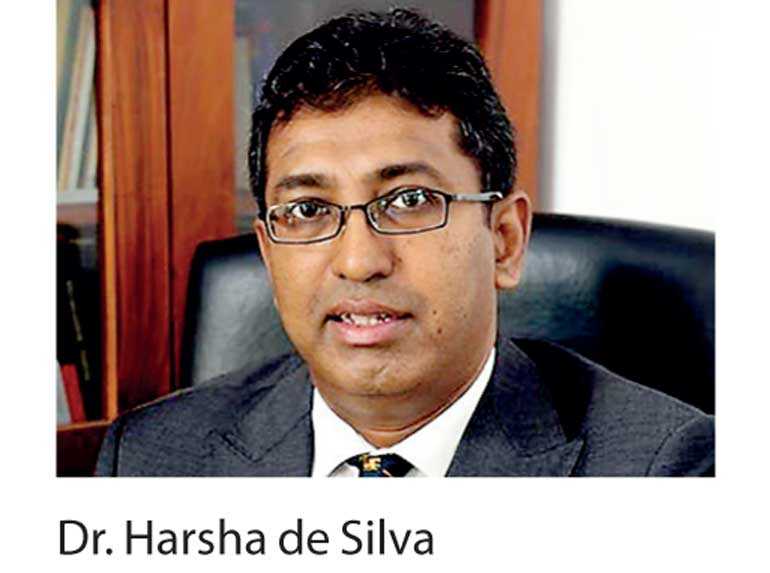Sunday Feb 22, 2026
Sunday Feb 22, 2026
Friday, 4 May 2018 00:00 - - {{hitsCtrl.values.hits}}

National Policies and Economic Affairs State Minister Dr. Harsha de Silva, despite yesterday agreeing with former Central Bank Governor Ajith Nivard Cabraal that several Foreign Direct Investment (FDI) projects were signed by the previous administration, insisted that a sizable number of new projects would soon be launched and contended that the Government had improved macroeconomic stability. “His claim is accepted; there is no issue about it because that is the normal practice. We are not so cheap to say otherwise. An investment doesn’t take off the ground just by signing an agreement. It requires time to be implemented. What we sign now will also continue, but that’s how we build investor confidence,” he told the Daily FT.
The Minister reiterated that the Hambantota port was an asset that drained a massive amount of public money without giving any returns, which the new Government had changed into a viable joint venture that will attract new investments.Dr. de Silva insisted considerable interest had been forthcoming from foreign investors in sectors such as tourism, real estate, healthcare, education and ICT for the Colombo Port City project. Therefore, even post-2020, investments will still continue to flow into Sri Lanka.
“We have moved away from the debt model to an FDI model,” Dr.de Silva pointed out.
The State Minister asserted that debt repayments by the Government would be for large commercial borrowings from 2007.
“The outstanding payment of $ 15 billion from 2019-2022 is a massive headache. These are some sour grapes, but we as a responsible government are actively managing that liability,” he stressed.
He also noted that this was one of the reasons for bringing in the Liability Management Act to pay back some of the previous regime’s borrowings.
The State Minister said the biggest rupee depreciation was recorded in 2012, when the Central Bank burnt $ 4.3 billion to defend the currency at Rs. 112, which went up to Rs. 132.50, depreciating by 15% in a matter weeks and pushing the country into a balance of payments crisis.
“That was the lack of management that these people who talk today had. Forgetting all of that and trying to accuse us is laughable,” said Dr. de Silva.